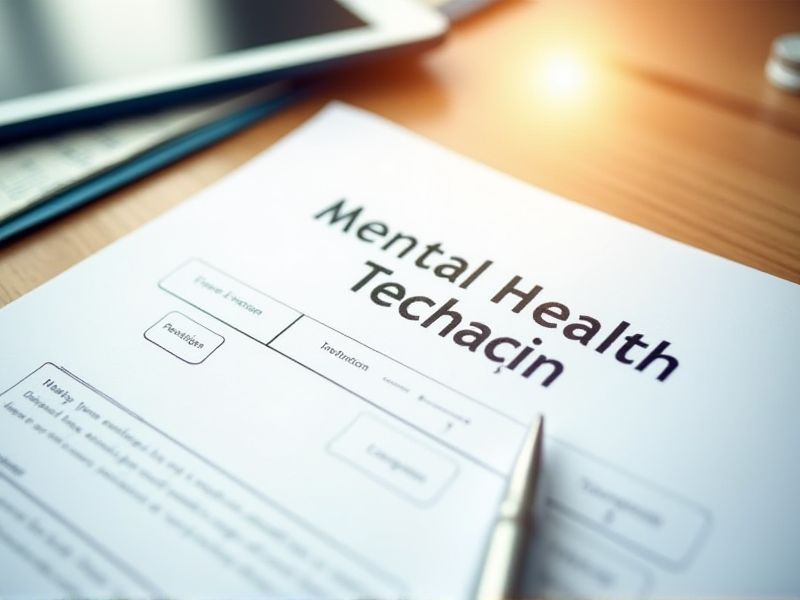
Mental health technicians play a critical role in supporting individuals with mental health challenges. Certifications ensure these professionals possess the necessary skills and knowledge to handle diverse and sensitive situations effectively. Specialized certifications also demonstrate a commitment to professional development and adherence to industry standards. Key certifications needed for mental health technicians include those focusing on crisis intervention and behavioral health.
CPR Certification
CPR certification equips a mental health technician with essential life-saving skills, enabling them to respond effectively in medical emergencies. Since mental health facilities can experience situations where a patient may have a medical crisis, being CPR-certified ensures immediate care before healthcare professionals arrive. The certification enhances a technician's overall competency, increasing their value within the healthcare team. CPR knowledge provides peace of mind for both the technician and the facility, promoting a safer environment for patients and staff.
First Aid Certification
First aid certification equips mental health technicians with the skills to respond promptly to physical emergencies, a common occurrence in mental health settings. Knowledge of first aid procedures ensures technicians can provide immediate care to patients experiencing physical crises. Certification also boosts the confidence and preparedness of mental health technicians, leading to a safer environment for both staff and patients. In some regions, certification serves as a regulatory compliance requirement, ensuring that mental health facilities operate within legal standards.
Certified Nursing Assistant (CNA) Certification
Certified Nursing Assistant (CNA) certification enhances foundational healthcare skills, which are critical for effectively supporting patients' physical needs, a key aspect of mental health care. The certification provides comprehensive training in patient care and medical ethics, ensuring mental health technicians maintain high standards in their practice. Understanding basic medical procedures, gained through CNA certification, reduces potential health risks for patients undergoing mental health treatment. CNAs are skilled in patient observation, crucial for monitoring behavioral changes in mental health settings.
Mental Health Technician Certification
Mental Health Technician Certification establishes a standardized level of competency, ensuring that technicians possess essential skills required for patient care. Certification also enhances job prospects, as many employers prefer or mandate certified candidates. Holding the certification signifies a commitment to professional development, which can lead to increased trust from patients and coworkers. Certified technicians often have access to more specialized training opportunities, potentially leading to career advancement.
Crisis Prevention Intervention (CPI) Certification
CPI Certification equips Mental Health Technicians with skills to safely de-escalate potentially volatile situations, thereby reducing the likelihood of harm to both patients and staff. This training enhances communication strategies, enabling technicians to foster a more therapeutic environment. With CPI Certification, facilities often observe a decrease in workplace injuries, which can result in lower healthcare costs and improved employee retention. Compliance with CPI protocols aligns with industry standards, which is crucial for maintaining accreditation and ensuring the highest quality of care.
Crisis Intervention Training (CIT) Certification
Crisis Intervention Training (CIT) Certification equips mental health technicians with skills to effectively de-escalate potentially volatile situations, minimizing harm to both patients and staff. This training provides a comprehensive understanding of mental health disorders, improving technicians' ability to recognize and respond appropriately to symptoms. Holding a CIT certification often correlates with reduced incident reports in facilities, reflecting an enhanced level of safety. As mental health awareness grows, institutions prioritize CIT-certified staff, aligning care methods with current best practices.
De-escalation Techniques Certification
De-escalation techniques help mental health technicians manage and reduce potentially volatile situations, minimizing risks for both patients and staff. Training in these techniques enhances a technician's ability to recognize early signs of agitation or distress. Certification in de-escalation techniques equips technicians with standardized strategies, ensuring a consistent and professional response across various scenarios. The training ultimately contributes to a safer healthcare environment and improves patient outcomes.
Suicide Prevention Certification
Mental Health Technicians often encounter individuals in crisis, and Suicide Prevention Certification equips them with the necessary skills to identify warning signs early. Possessing this certification allows technicians to execute evidence-based interventions effectively, reducing the risk of harm. This specialized training helps in building trust with patients, fostering a safer therapeutic environment. Facilities emphasizing certified staff tend to experience lower incidents of suicide-related emergencies, highlighting its value in improving overall patient care outcomes.
HIPAA Compliance Certification
HIPAA Compliance Certification is needed for Mental Health Technicians because it ensures they understand and adhere to the regulations protecting patient privacy. Proper compliance reduces the risk of unauthorized disclosures of sensitive health information, which can negatively impact patient trust and wellbeing. Securing certification enhances the technician's credibility and professional integrity, proving their commitment to safeguarding patient data. Without such certification, facilities may face legal liabilities and financial penalties due to non-compliance.
Trauma-Informed Care Certification
Trauma-Informed Care Certification equips mental health technicians with the skills necessary to recognize and address the effects of trauma, which can significantly impact a patient's mental health. Approximately 70% of adults in the U.S. have experienced some form of trauma, increasing the demand for knowledgeable care providers. Knowing how to create safe environments for trauma survivors can lead to improved treatment outcomes. Agencies with certified staff see reduced incidences of re-traumatization, leading to better patient compliance and satisfaction.
Summary
With additional certifications, you can expect to enhance your skill set, boosting career prospects in the mental health field. Employers often view certified technicians as more knowledgeable and reliable, leading to increased job opportunities. Certified professionals usually experience higher job satisfaction due to their improved ability to support patients effectively. The additional qualifications can also pave the way for potential salary increases.
